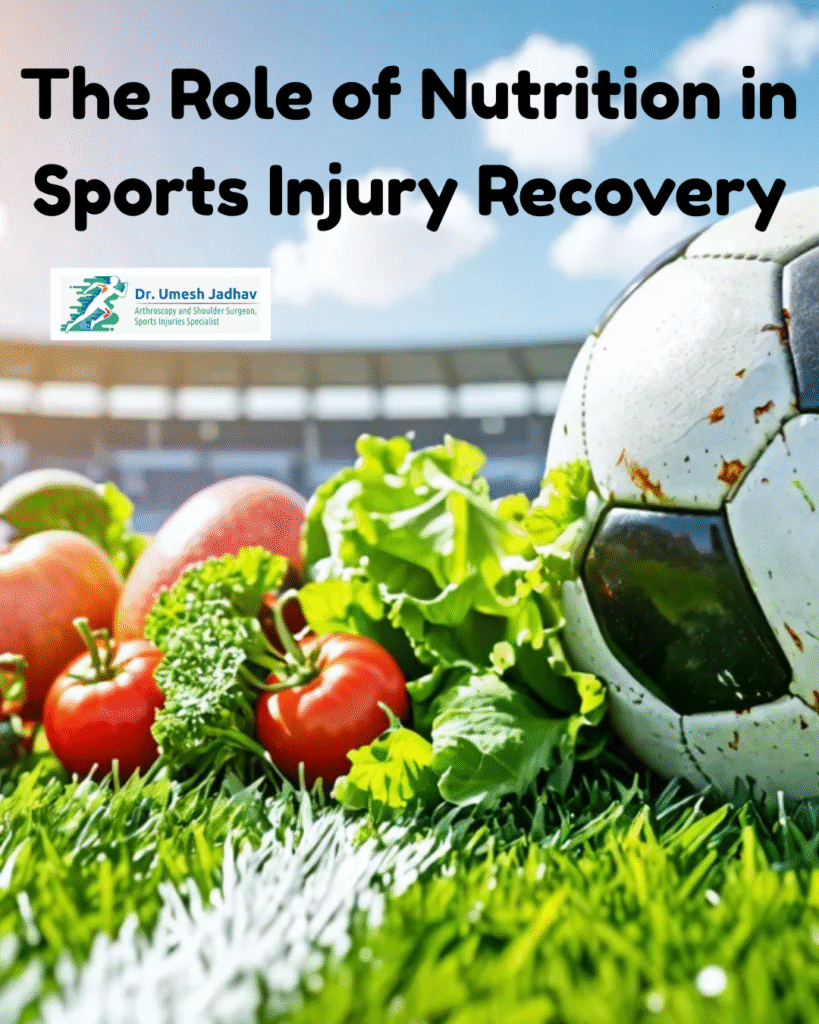When athletes get injured, the first focus is usually on rest, physiotherapy, or sometimes surgery. But did you know that nutrition plays a vital role in how quickly and effectively your body recovers from a sports injury? The right foods can reduce inflammation, speed up healing, and rebuild strength—helping you get back to your sport faster.
Why Nutrition Matters After an Injury
Injuries put your body under stress. Healing requires energy, proteins, vitamins, and minerals. If your diet lacks the right nutrients, recovery can be delayed, and you may feel weaker when you return to play. Good nutrition ensures:
-
Faster tissue repair
-
Reduced inflammation and swelling
-
Stronger bones and muscles
-
Better overall energy during recovery
Key Nutrients That Support Recovery
1. Protein – The Building Block of Healing
Protein helps repair damaged muscles, ligaments, and tissues.
-
Sources: Eggs, chicken, fish, milk, beans, lentils, tofu.
2. Vitamin C – For Collagen and Immune Support
Vitamin C helps form collagen, which is essential for healing ligaments and tendons.
-
Sources: Oranges, strawberries, bell peppers, kiwi, lemon.
3. Vitamin D and Calcium – For Strong Bones
These nutrients support bone healing and prevent future fractures.
-
Sources: Milk, curd, cheese, leafy greens, and sunlight (for Vitamin D).
4. Omega-3 Fatty Acids – To Reduce Inflammation
They help control swelling and pain after injury.
-
Sources: Fish, walnuts, flaxseeds, chia seeds.
5. Zinc – For Faster Wound Healing
Even small deficiencies can slow down recovery.
-
Sources: Nuts, seeds, whole grains, beans.
6. Antioxidants – To Fight Stress on Cells
They reduce tissue damage caused by free radicals.
-
Sources: Berries, green tea, spinach, carrots.
Hydration: The Often Ignored Factor
Water helps transport nutrients, remove toxins, and keep joints lubricated. Dehydration can slow recovery, so drink enough fluids throughout the day.
Foods to Avoid During Recovery
Certain foods can increase inflammation and delay healing. Try to limit:
-
Sugary snacks and soft drinks
-
Fried and junk food
-
Excess alcohol
-
Highly processed packaged foods
Conclusion
Recovering from a sports injury requires more than medical treatment and physical therapy—it also depends on how well you fuel your body. By choosing nutrient-rich foods, staying hydrated, and avoiding unhealthy dietary habits, you can support faster healing and reduce the risk of future injuries.
Whether you’re a professional athlete or a fitness enthusiast, paying attention to your nutrition during recovery will help you regain strength, rebuild confidence, and return to your sport with better performance.

